Greek wildfires affect the future of beekeeping and the environment
Years of extreme heat and prolonged drought have created dangerous wildfire conditions in Greece, wiping out the vegetation that bees depend upon – and spelling trouble for the ecosystem
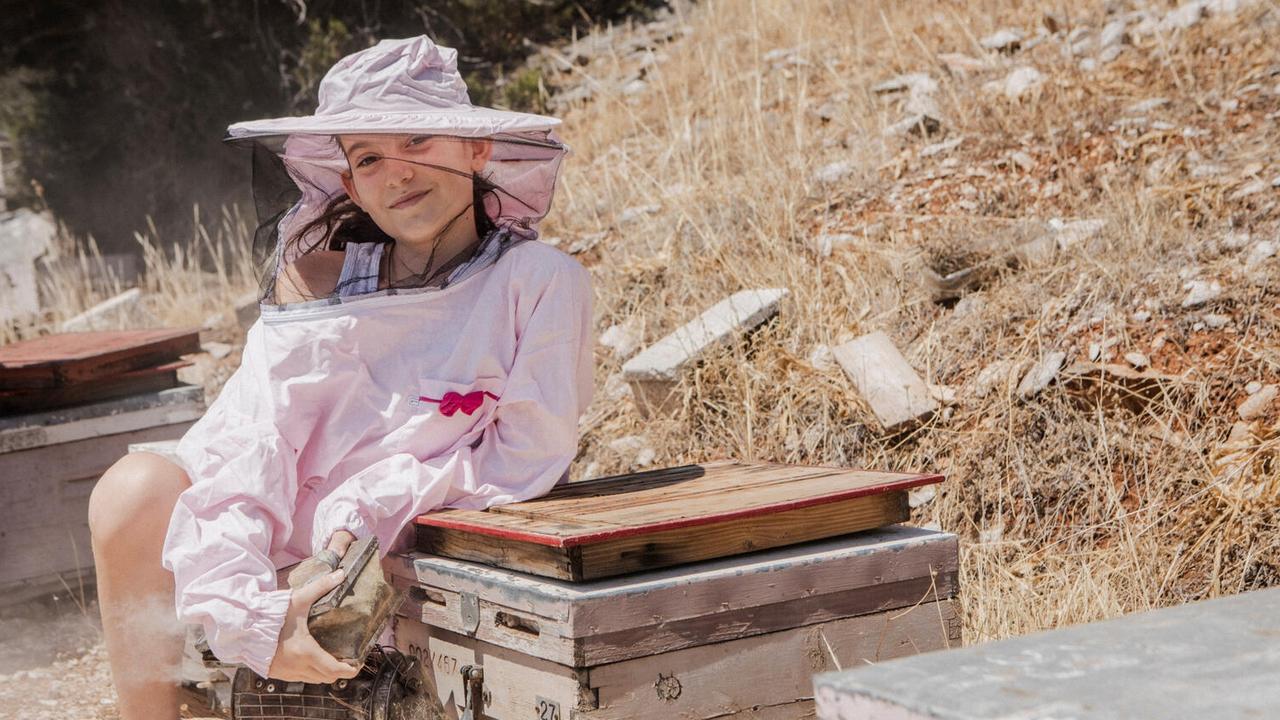
READING LEVEL: ORANGE
Markela comes from a long line of beekeepers in the town of Nea Makri, on the east coast of Greece. Since she was young, she has helped her grandfather Markos with beekeeping – inspecting the beehives, finding the queen bees and collecting the honey.
But 11-year-old Markela, who would make the fifth generation of beekeepers, might not be able to continue the family business.
Honey production has been the source of the family’s income for more than a century. But with climate change, the health of the bees and the amount of honey they can produce has also changed.
“I see that the beehives are weaker, as well as their population because the trees and flowers are getting burnt,” Markela said.
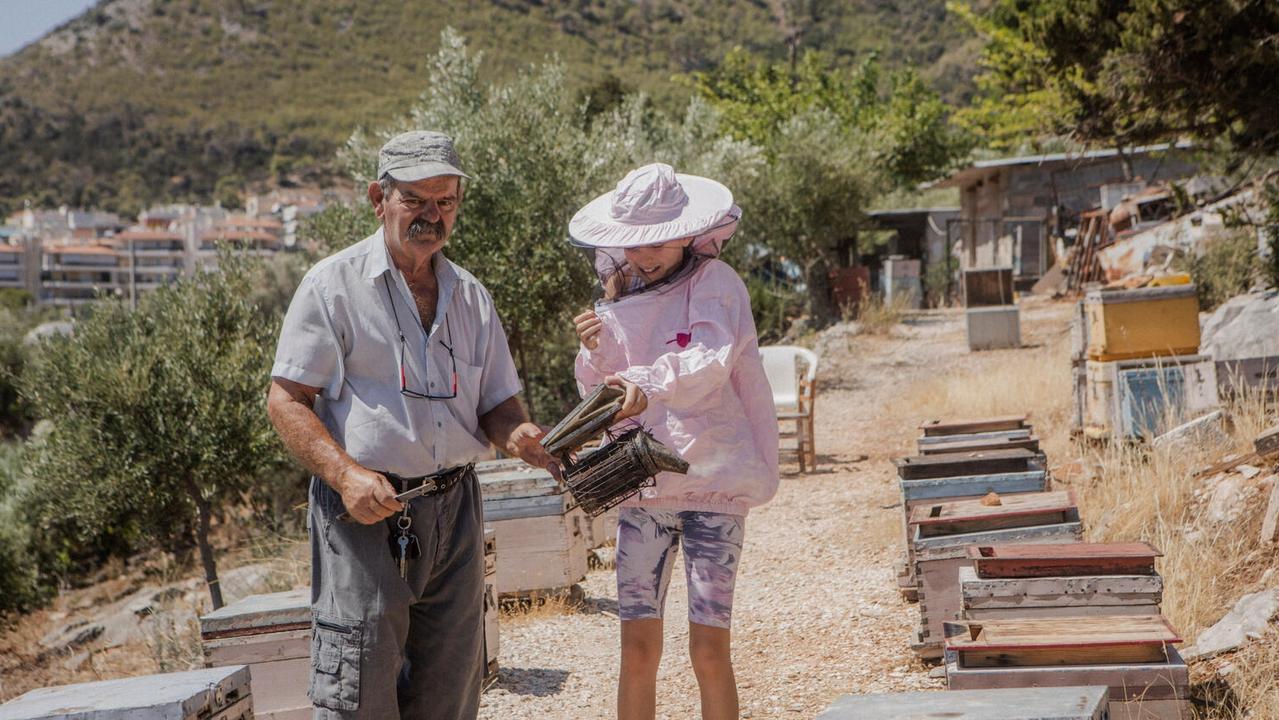
Wildfires have scorched the landscape and the vegetation the bees depend on – and where there haven’t been wildfires, there has been drought.
“The bees have been decimated*,” 70 year old Markos said. “The drought has affected us a lot, the whole place has dried up, there are no flowers, and the bees need the flowers. If there is no blossoming* stage, there is no pollen and no honey.”
Bees are not just important for making honey. They are also a sign of a healthy ecosystem*, and for Markela and Markos, the shrinking populations have sounded the alarm for the climate crisis.
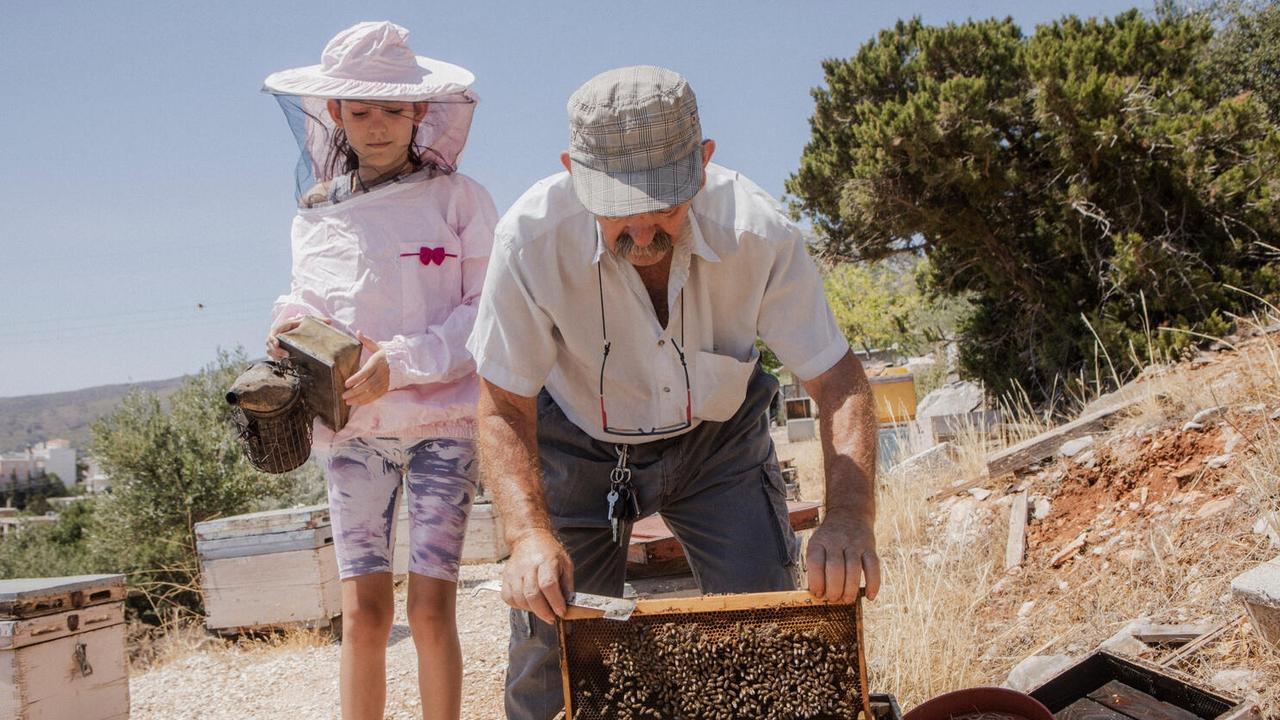
But the lack of bees is not the only change Markela has seen.
“Almost every day I see in the news about children that they have to flee from their houses due to wildfires. I am afraid because we have a lot of trees here and I am afraid in case a fire reaches us here,” she said.
Greece has this year had its hottest ever June and July on record. The extremely hot temperatures, as well as strong winds and long periods of drought, have made conditions even more concerning.
Thousands of people have been evacuated in the Greek capital as wildfires rage, threatening homes, shops and schools. Though wildfires are common in Greece, they have become stronger and more frequent due to climate change.
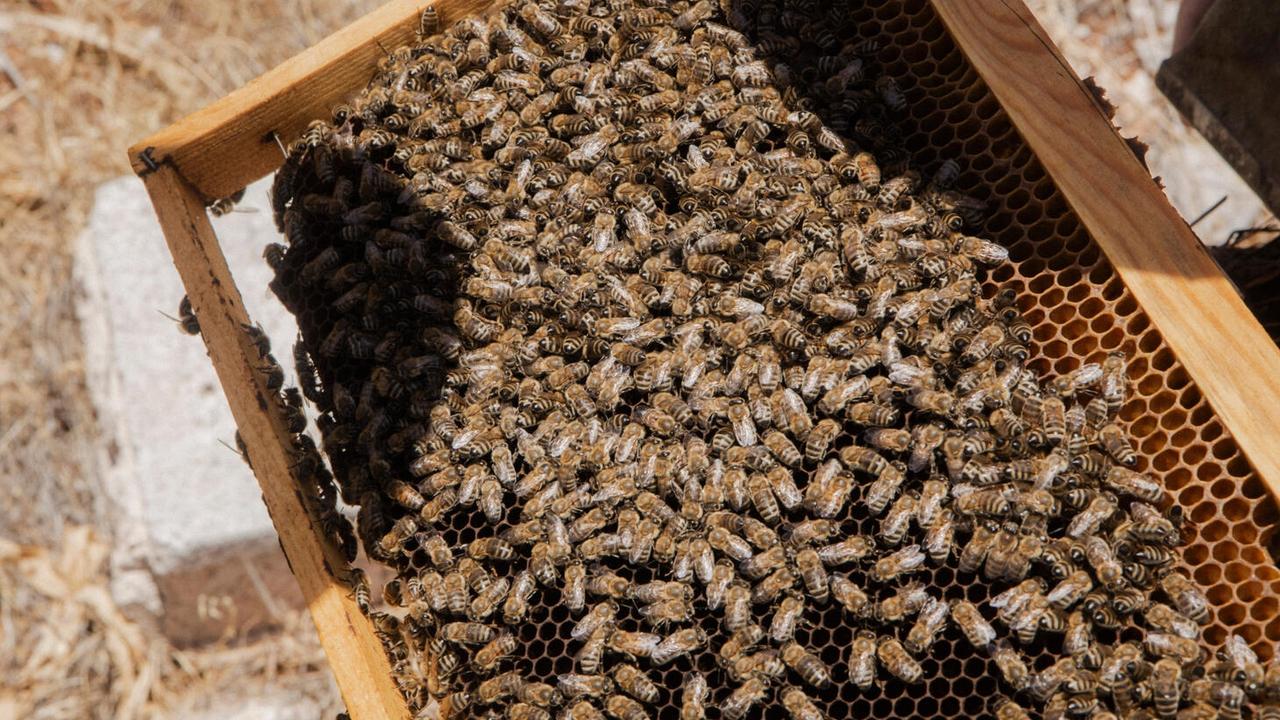
Markos said they were always on alert.
“Every summer that the heatwaves are starting, we are worried about the fires because we are close to the forest,” he said.
Research shows children like Markela will experience three times more climate disasters* than their grandparents.
One billion children around the world, including here in Australia, are facing the impacts of climate change.
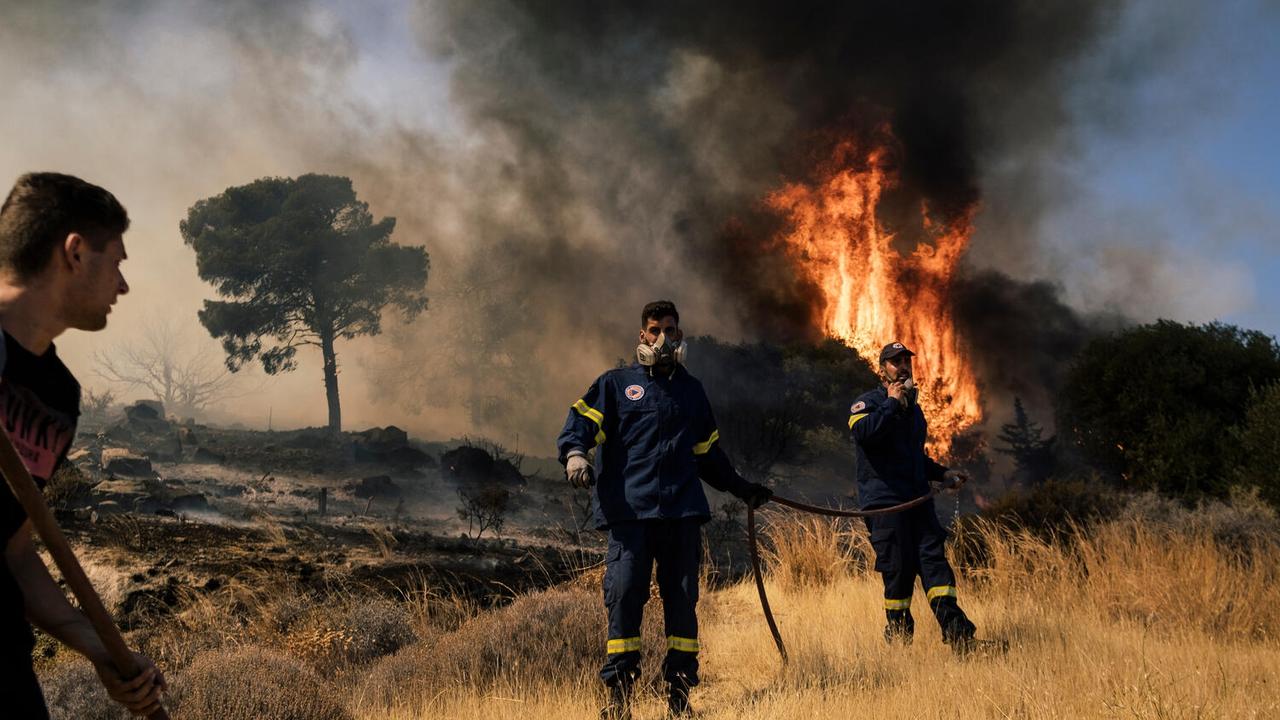
International aid agency UNICEF has been working hard to protect children from the effects of climate change while helping communities build towards a more sustainable future.
The agency has helped to build infrastructure* to provide towns hit by drought with safe drinking water. It has also helped to rebuild schools and facilities in areas hit by disasters and has set up emergency supply hubs* in areas facing climate disasters.
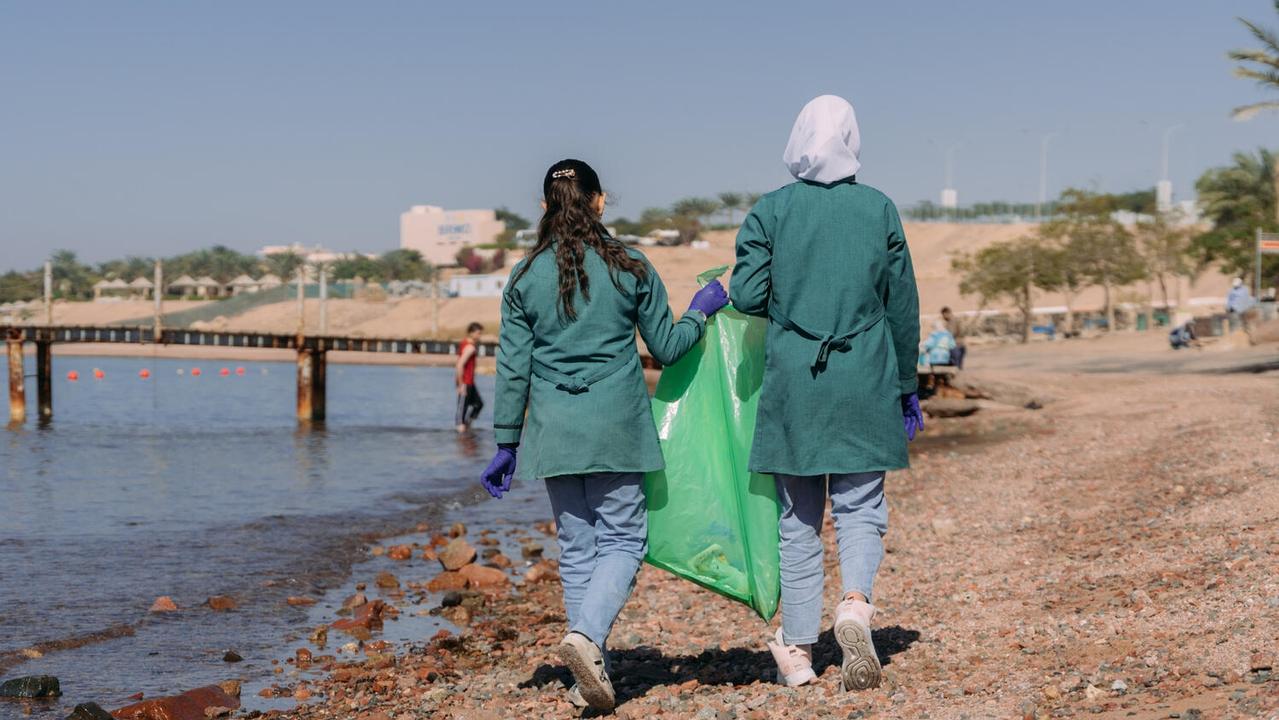
WAYS WE CAN HELP
While it’s easy to feel overwhelmed about the effects of climate change, UNICEF said there were lots of small but impactful* choices we could make in our day-to-day life to help take care of our environment.
Here are their top tips for fighting climate change:
1. Become a climate champion by learning more about climate change
2. Walk or ride your bike to school instead of driving
3. Repair or recycle your clothes, toys or other items instead of throwing them away
4. Throw your rubbish away properly so it doesn’t create pollution for animals or plants
You can find out more tips for fighting climate change on the UNICEF Australia Youth page at: unicef.org.au/unicef-youth/guide-to-climate-action
POLL
GLOSSARY
- decimated: destroyed, wiped out
- blossoming: when flowers come into bloom
- healthy ecosystem: when all the different plants and animals in an environment are in the right balance. Bees are an important part of most ecosystems because they act as pollinators, helping fruiting plants produce fruit
- climate disasters: natural disasters caused by climate change
- infrastructure: things like water pipes and pumps
- emergency supply hubs: places where people can get essential supplies like food, water and medicine during an emergency
- impactful: something that makes a big difference
EXTRA READING
Plastic not so fantastic for people
Aussies hatch sea creature survival plans
Bees’ survival creates major buzz
QUICK QUIZ
1. How are Greek beekeepers Markos and Markela being affected by wildfires?
2. Why is the risk of wildfire so high in Greece at the moment?
3. What things do bees need to survive and make honey?
4. How is UNICEF helping fight the impacts of climate change?
5. What are two things you can do to help create a better, more sustainable future?
LISTEN TO THIS STORY
CLASSROOM ACTIVITIES
1. Make a plan
Create a class Climate Change Action Plan. The plan will include practical things that everyone can do each day at school and at home to help to fight climate change.
Time: allow at least 30 minutes to complete this activity
Curriculum Links: English, Science, Geography, Personal and Social Capability
2. Extension
There are some people who say that climate change is not real. Write down at least five pieces of evidence that you can find in the story and use your research skills to help them to understand climate change.
Time: allow at least 45 minutes to complete this activity
Curriculum Links: English, Science, Geography
VCOP ACTIVITY
To sum it up
After reading the article, use your comprehension skills to summarise in a maximum of three sentences what the article is about.
Think about:
- What is the main topic or idea?
- What is an important or interesting fact?
- Who was involved (people or places)?
Use your VCOP skills to re-read your summary to make sure it is clear, specific and well punctuated.

